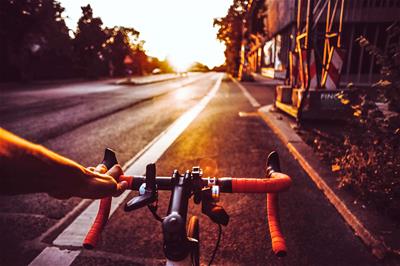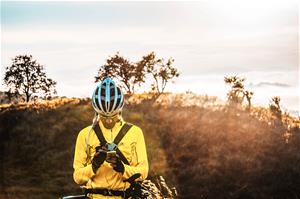Sharing the road: bike safety tips for
Chicago cyclists and motorists

For many, biking is more than a hobby. It can be a source of transportation, passion or even a way of life. Most importantly, it’s downright fun.
The good news for Windy City residents is that Chicago is ahead of the game when it comes to bike safety. After recently implementing increased safety measures for street cyclists—
including over 108 miles of separate bike lanes divided by paint or short cement barriers, Chicago was recently rated the top biking city in the U.S. by
Bicycling Magazine.
Soon after, Mayor Emanuel announced the launch of the
Vision Zero Chicago Initiative, aimed to eliminate deaths and significant injuries in biking accidents entirely. The initiative recognizes that in order to keep everyone safe, both bicyclists and motorists need to do their part.
If you’re a cyclist, always be sure to:
1. Wear a helmet
It provides much needed protection should an accident occur. A proper helmet should fit snuggly and not move once strapped on, without falling too far forward or back. Visit
HelmetCheck.org for more information and to check if your helmet passes the safety test.
The price of helmet is not necessarily related to safety. Make sure the helmet you purchase meets ANSI criteria for crash protection. More expensive helmets are lighter and more aerodynamic, but do not necessarily afford better protection.
2. Follow the rules of the road
In Illinois, a bike is a vehicle. That means you share the same responsibilities and rules of the road. Always stop at every red light and stop sign, avoid changing lanes without hand signals and ride in the same direction as traffic.
“Following the rules of the road contains four main aspects: obeying traffic signals, yielding to pedestrians, riding in the same direction as traffic and (if you're 12 years or older) riding on the street and not the sidewalk,” said Lauren Crabtree of Chicago’s Safe Routes and Bicycling Ambassadors. “These are important to riding confidently and safely because adhering to the rules of the road can help protect all road users from crashes and plays a part in ensuring that cyclists and motorists alike are able to reach their destinations both timely and safely.”

3. Increase your visibility
Consider florescent or bright colored clothing. If you bike at night, affix a white light to the front of your bike and a red light on the back. Bike predictably by biking in a consistent line parallel to traffic and always proceed with caution around large vehicles. Many fatal crashes in Chicago last year involved large trucks, which carry more blind spots than a smaller vehicle.
“As an occupational therapist and certified hand therapist, the most prevalent type of cycling related injury I currently see is from falls or collisions with motor vehicles,” said Bryan Carlson, MS, OTR/L, CHT, hand therapy program coordinator at Swedish Hospital. “As a cyclist myself, I think it's important for cyclists who ride in the city to maintain a heightened sense of awareness of their surroundings and to ride as defensively as possible. This includes not using headphones when riding, maintaining a safe distance in traffic and utilizing safety equipment such as reflectors, lights and a helmet. Knowing your rights and responsibilities as a cyclist is also very important for any cyclist who ventures off the bike path and on to the road.”
4. Use hand signals
Cars have turning signals, so do you. Not sure how? It’s easier than you think. Illinois recently traded in cryptic hand signals in favor of a universal alternative—just point where you want to go!
5. Consider taking the road less traveled
Simply put, less cars means less risk. When possible, always take the less traffic-heavy route. Urban trails like the Lakefront and 606 provide the ultimate low-stress biking experience for people of any age or skill level. A campaign is underway to create a citywide trail network, including a continuous Chicago River Trail.
“Trails are wonderful because they provide a safe and comfortable environment and encourage people to walk and bike,” said Steve Simmons, trail advocacy manager at Active Transportation Alliance. “Research has shown trails improve public health outcomes, protect the environment and increase economic development activity.”
Learn more about the Chicago River Trail campaign>>

As a motorist, do your part to prevent these common collisions:
1. The right hook
When a cyclist is struck by a driver turning right. Before making the turn or entering into the turn lane, which may be occupied by a cyclist, always check your mirrors and your blind spot.
2. The left cross
When a cyclist crossing an intersection is struck by a driver turning left on the opposite side. Always look for oncoming cyclists, especially in heavy traffic.
3. The door
When a car passenger opens a car door into a bike lane, striking a cyclist. Always look before you open your door, no matter where you are. Recent reports show an increase in dooring incidences, marking this dangerous and potentially fatal type of collision as a growing danger for Chicago cyclists.
Learn more about the growing risk of doorings>>
By David Modica | Published May 12, 2017

